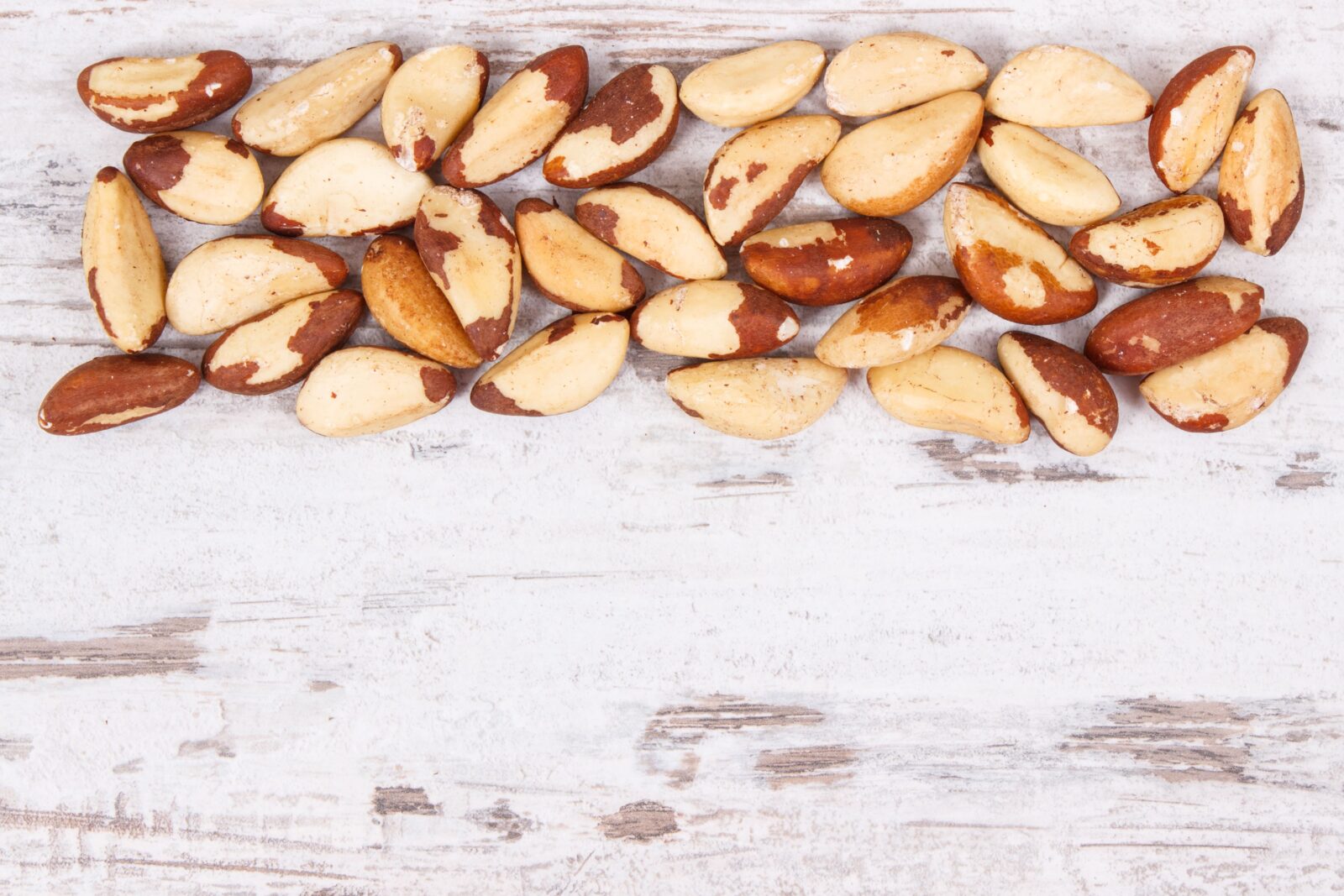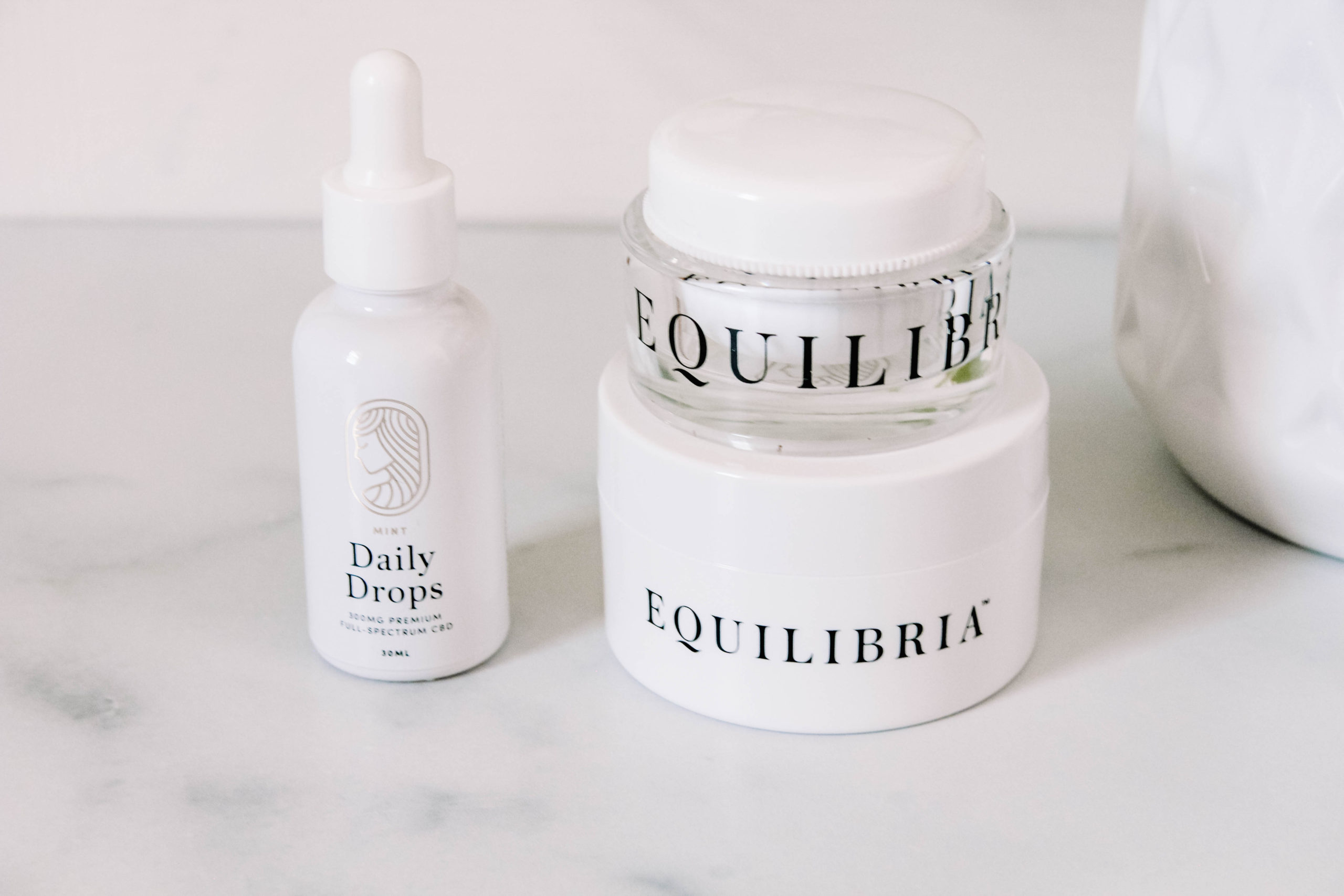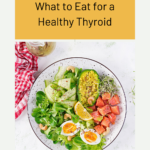Last updated on May 11th, 2023 at 10:14 am
If you know anything about me, my story, and how I found myself in the health and wellness world, you will see that I have struggled with thyroid disease my entire adult life. After diving in deep, learning so much, and completing nutritional therapy school, I have managed my health and symptoms more effectively. Even though the thyroid is a sensitive and delicate gland, there is so much you can do to support it, including adding foods for thyroid health to your daily diet.
An estimated 20 million Americans have some form of thyroid disease, and women are five to eight times more likely than men to have thyroid problems. Ladies, I feel you… but can we stop restricting and start nourishing ourselves with foods for thyroid health?
A wide variety of nutrients support thyroid function and thyroid hormone production. Therefore, it is important to use the right balance of these nutrients to help improve thyroid function and to balance hormones. Where do you find these nutrients? It is simple, start including foods for thyroid health in your daily eating habits, you will be surprised how simple these foods are to come by,
I always recommend getting nutrients from food, but in some cases, supplementation is necessary for a time and a season. When you need supplements, I recommend working with a practitioner who is well-versed in nutrition to help you determine the best dosage for your body. Also, remember that all supplements are not created equally – please don’t buy supplements from Amazon.

Here are the 10 nutrients that are essential for thyroid health:
Iodine
Iodine is present and active in every organ and tissue in the body. Many people only associate iodine with thyroid health. Still, it is also needed for fetal development, proper immune function, hormone balance, healthy salivary glands, and healthy breast tissue, ovaries, skin, and prostate.
Iodine is needed for the creation of thyroid hormones, particularly FT4. It also plays a crucial role in the liver’s ability to convert FT4 to the active thyroid hormone FT3. Any hindrance in this creation and conversion process can also lead to hypothyroidism.
Iodine deficiency is also known to cause goiters and contribute to thyroid cysts and nodules.
The body doesn’t make iodine, so it is essential to eat iodine-rich foods daily.
Iodine-rich foods
- sea vegetables – kelp, dulse, nori, and wakame
- wild-caught seafood
- raw milk and cream, cultured yogurt, cultured sour cream
- pastured eggs
- sea salt

Zinc
Zinc is needed for the production of TSH and for the conversion of FT4 to FT3. Moreover, it is also necessary to help create the proper amounts of stomach acid because this enables the body to utilize all the nutrients in the food.
It is important to understand that zinc and stomach acid work synergistically together. For this reason, you need stomach acid to make zinc, and you need zinc to make stomach acid. Furthermore, if you find that you are constantly zinc-deficient. You are likely eating in a stressed state and not producing enough stomach acid.
Zinc-rich foods
- grass-fed or pastured meats
- soaked or sprouted pumpkin seeds*
- pastured eggs
- soaked or sprouted garbanzo beans*
- wild-caught oysters (or a whole food oyster supplement by Smidge available on my Fullscript dispensary)
- organic cultured dairy
- soaked or sprouted lentils*
*These plant foods contain zinc, but getting enough daily zinc from them is tough. I always recommend that my nutritional therapy clients eat some pastured animal foods to get the recommended amount of zinc daily.
Tyrosine
The “T” in thyroid hormones stands for “tyrosine.” Additionally, the thyroid combines tyrosine and iodine to create thyroid hormones crucial for producing Tf, FT4, T3, and FT3. Moreover, tyrosine is an amino acid naturally produced in the body from another amino acid called phenylalanine.
Thyrosine-rich foods
- pastured meats – chicken, beef, pork, lamb, bison
- organic raw dairy
- pastured eggs
- soaked or sprouted almonds
- wild-caught fish
- organic cultured dairy
- soaked or sprouted lima beans
Selenium
Selenium helps support the thyroid in making thyroid hormones. Furthermore, it also plays a vital role in helping convert FT4 to FT3 in the liver. Some studies have shown that selenium supports the immune system and helps reduce TPO antibodies.
Selenium-rich foods
- soaked brazil nuts
- cultured cottage cheese
- pastured meats – beef and chicken
- wild-caught seafood – tuna, halibut, sardines, shrimp
- pastured eggs
- grass-fed liver (if you can’t stomach the thought of liver – these liver capsules are a great alternative)

Iron
The body needs iron to make thyroid peroxidase (TPO), which produces the thyroid hormone FT4. This means that when the body is deficient in iron, FT4 levels can drop and cause the body to be in a hypothyroid state.
Iron is also needed to convert FT4 to active FT3, so low iron levels can cause a decrease in FT3. Moreover, this can lead to uncomfortable symptoms such as low energy, weight gain, etc.
It is essential to get iron-rich foods from animal sources daily. I am aware that vegetables like spinach contain iron. Still, the problem is that sometimes these nutrients in plant foods aren’t in the most bioavailable form. It is best to stick with heme sources of iron.
Iron-rich foods
- grass-fed liver (if you can’t stomach the thought of liver – these liver capsules are a great alternative)
- pastured beef and chicken
- wild game meats
- wild-caught oysters (or a whole food oyster supplement by Smidge available on my Fullscript dispensary)
- pastured eggs
Sulfur
The need for sulfur can easily be met through the diet. Why is sulfur essential to the thyroid? It supports the liver, which plays a significant role in thyroid hormone production. This is where the body converts most of the FT4 to FT3.
Sulfur-rich foods
- pastured eggs
- garlic
- onions
- raw dairy
- soaked or sprouted legumes
- cruciferous vegetables – broccoli, cabbage, kale, brussel sprouts, cauliflower, etc.*
*These vegetables contain goitrogens and therefore need to be cooked so they don’t inhibit the uptake of iodine.
Magnesium
Magnesium is essential for proper thyroid function and converting T4 to T3. Some studies show low magnesium is associated with a much higher TgAB – thyroid antibodies risk.
Magnesium is the first mineral the body burns through when it is in a state of stress. Getting enough magnesium from food is not always possible, and often the stress in our lives can cause a major deficiency.
Magnesium-rich foods
- wild-caught fatty fish
- avocado
- soaked or sprouted nuts and seeds
- cooked leafy green vegetables
- soaked or sprouted legumes
A super (and relaxing) way to increase magnesium stores in the body is to take a magnesium salt bath for 20-25 minutes – add your favorite essential oil (I love the Adpativ blend) to help relax your body and, in turn, replenish the magnesium stores. This lotion is also a great option to increase magnesium levels topically. I always recommend getting various kinds of magnesium when supplementing – I love Smidge Morning and Evening Magnesium (available on my Fullscript dispensary) and this liquid form.

Vitamin D
Vitamin D plays a very important role in producing and creating thyroid hormones. Without the proper amount of vitamin D, there will often be a decrease in T4 and/or FT3, leading to hypothyroidism.
Some studies have shown a connection between thyroid autoimmunity and low vitamin D levels.
Vitamin D also regulates insulin and blood sugar. When blood sugar is imbalanced, it often causes thyroid hormones to be off-balanced.
Vitamin D-rich foods
- pastured egg yolks
- organic grass-fed butter
- grass-fed beef
- mushrooms
- organic raw milk and cream
- grass-fed liver and organ meats (if you can’t stomach the thought of liver – these liver capsules or multi-organ capsules are a great alternative)
- wild-caught oily fish – tuna, salmon, sardines, anchovies, etc
- cod liver oil (I recommend Rositas cod liver oil, available on my Fullscript dispensary)
- pastured animal fats – butter, ghee, tallow, lard, duck fat
Vitamin A
Vitamin A is a fat-soluble vitamin and is very important to the thyroid. Moreover, it plays a role in balancing the correct levels of thyroid hormones in the body and supporting the liver (as we know, the liver plays a huge role in thyroid hormone balance.)
It is important to note and understand that vitamin A also known as retinol, is only found in animal foods, not vegetables. However, vegetables contain beta-carotene, and the body can convert it to vitamin A in very small amounts. Still, the thyroid needs to be working in an optimal capacity to do so. Very few people are in good enough shape to make this conversion.
Other conditions such as diabetes, low fat intake, pancreatic disease, celiac, and being an infant or child can also interfere with converting beta-carotene in plant foods to Vitamin A.
Vitamin A-rich foods
- grass-fed liver (if you can’t stomach the thought of liver – these liver capsules are a great alternative)
- wild-caught fatty fish
- organic raw dairy
- pastured meats – beef, lamb, chicken, pork
B Vitamins
B vitamins play so many roles in the body and in optimal health. For instance, thiamin, Riboflavin, and B12 help to support the entire endocrine system. Furthermore, vitamins B6 and B12 are very calming to the nervous system, which helps to balance the adrenals and supports the thyroid gland. Lastly, B vitamins also work with iodine to produce T4 and T3.
Also, those who suffer from hypothyroidism often have a B12 deficiency.
B-vitamin-rich foods
- pastured beef and poultry
- wild-caught fish
- organic cultured dairy
- soaked or sprouted legumes
- cooked dark leafy greens
- pastured eggs

Always remember – you aren’t what you eat, but what you absorb!
Hydrochloric acid (also known as stomach acid or HCl) is a very necessary and vital part of the digestive process, enabling the body to absorb and use all the nutrients in our food.
So if you continue to find nutrient deficiencies, it is important to know that low stomach acid might be (and often is) the root cause.
It is always best to improve digestion naturally before taking many supplements. Having a healthy digestive system is the key to optimal health.
As seen above, eating a diet rich in foods for thyroid health can be pretty simple. Moreover, I share the specific foods for thyroid health that are simple, easy to come by, and everyday foods that nourish your body, mind, and soul.
More to read: Therapeutic Food For Digestive Support
Disclaimer: This post is not intended to provide medical advice, diagnosis, or treatment and is for educational purposes only.
To order practitioner and therapeutic-grade supplements, visit my Fullscript dispensary for an automatic 15% off all orders.
*****
Use code “NURTUREMEWILD” at checkout to save 15% off your first order at Crucial Four!
*****
Use code “NURTUREMEWILD” at checkout to save 10% off all your orders at Perfect Supplements!
*****
Use code “NEWTOEARTHLEY” at checkout to save 10% off your first order at Earthley!
*****
Use code “NURTUREMEWILD” at checkout to save 10% off your first order at Live Pristine!





+ view comments